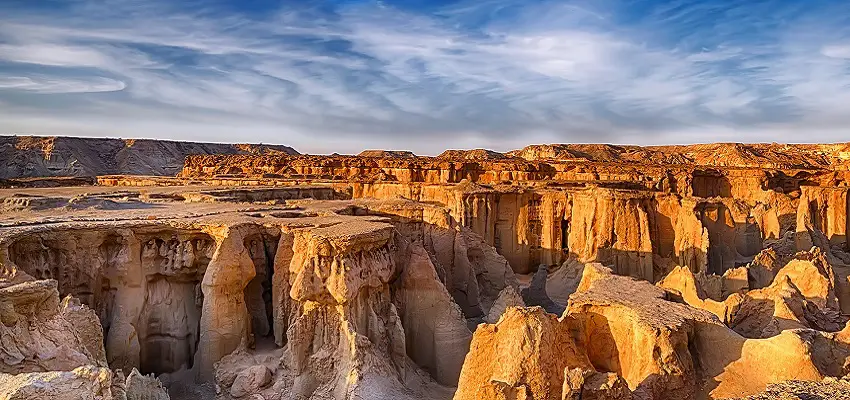Have You Ever Wondered How Your Adventures Impact the Planet? Traveling is one of life’s greatest pleasures, discovering new cultures, witnessing untouched landscapes, and embracing unique experiences. But the harsh truth is that the tourism industry also plays a significant role in environmental degradation. The good news? You don’t have to give up traveling to help save the planet! Sustainable travel isn’t just a passing trend — it’s a conscious way to explore the world while preserving its resources for future generations.
If you want to be recognized as a responsible traveler, this post is for you. Join Sepehran Blog as we explore five practical tips for sustainable travel that can completely transform the way you journey.

What is Sustainable Travel?
Sustainable travel refers to a form of tourism that minimizes negative impacts on the environment and local cultures while still allowing you to enjoy meaningful travel experiences. In this type of travel:
- Natural resources are protected.
- Local economies are supported.
- Cultural awareness is enhanced.
- And travel becomes more ethical and fulfilling.
Choose Green Transportation Options
There are many eco-friendly transportation choices. Let’s take a look:
✈️ Prefer Direct Flights
Multi-leg flights not only waste your time, but they also consume more fuel and emit more carbon. Choosing a direct flight is one of the simplest ways to reduce your travel carbon footprint.
🚌 Use Public Transportation
At your destination, taking the bus, subway, or train instead of a taxi or rental car is both budget-friendly and better for air quality.
🚲 Walk or Bike
Choose the shortest and greenest route! Walking or cycling not only reduces your carbon footprint but also helps you connect more deeply with the city and its people.
🚗 Rent Electric Vehicles
If you must rent a car, opt for an electric or hybrid model instead of a gasoline-powered one. This choice significantly lowers air pollution.
Choose Eco-Friendly Accommodations 🏡
One of the best ways to enjoy a sustainable and low-impact trip is by choosing eco-friendly accommodations. Some of these even hold certifications like “Green Hotel,” which signifies their commitment to environmental protection and sustainability. These hotels and hostels often prioritize the environment by using renewable energy, incorporating recycled materials in their interior design, and minimizing their ecological footprint.
Many of them also serve organic and locally sourced food, use energy-efficient lighting, and prefer chemical-free cleaning products. If you want your trip to support nature and local communities, consider staying in an environmentally certified hotel.
Hotels and hostels with green certifications or sustainable standards usually:
Use renewable energy sources.
Save water and electricity.
Incorporate recycled materials into design and services.
Serve organic and local food.
By staying in such places, you not only show respect for nature but also support local businesses.
Reduce Your Waste Footprint ♻️

Bring a reusable water bottle
Every year, millions of plastic bottles end up in nature. By carrying a refillable glass or stainless steel bottle, you can do your part to reduce this pollution.
Don’t forget reusable cloth bags.
Instead of using plastic bags for souvenirs or groceries, bring a light, foldable cloth bag with you.
Take Green Steps During Your Trip
Avoid plastic consumption
One of the core principles of sustainable travel is reducing plastic use. Plastics severely damage the environment, causing pollution and disrupting ecosystems. Instead of buying multiple plastic water bottles, carry a reusable one and refill it during your trip. Also, keep a foldable cloth bag on hand so you won’t need plastic bags while shopping.
Join eco-friendly tours
Another way to travel sustainably is by joining nature-conscious tours. Activities like hiking, mountain climbing, skiing, or scuba diving in protected areas allow you to connect with nature while minimizing environmental harm.
Participate in social responsibility projects.
If you feel your trip has contributed to carbon emissions or environmental damage, you can take positive actions to offset the impact — for instance, by planting trees, helping with nature clean-ups, or volunteering. These efforts not only help the environment but also make your travel experience more meaningful.
Join Eco-Friendly Tours and Activities 🌲
Ecotourism Experiences
Instead of high-consumption entertainment, choose low-impact experiences like hiking, nature walks, diving, or cycling. These activities consume less energy and deepen your connection with the environment.
Volunteer Projects 🌱
Participate in projects such as tree planting, beach clean-ups, or local community education. You’ll leave a positive mark while gaining a richer travel experience.
Respect Local Cultures

A key principle of sustainable tourism is respecting indigenous cultures and supporting local economies. Travel with an open mind, embracing new customs and beliefs. By shopping at local stores, staying in locally owned hotels, and dining at local restaurants, you directly support the host community and contribute positively to the local economy.
Protect Wildlife and Cultural Heritage
A foundation of sustainable travel is caring for nature and preserving cultural values. During your trip, avoid harming wildlife, don’t litter, and don’t interfere with natural ecosystems. This ensures animals can live safely and future generations can enjoy pristine nature. By respecting historical sites and local cultures, you help preserve cultural identity and the region’s valuable heritage.
The Benefits of Sustainable Tourism for Communities and the Environment
Sustainable tourism offers broad benefits to both society and nature. First, it creates economic opportunities in underdeveloped areas, without the need for industrialization or resource exploitation.
Second, it ensures natural resources remain available for future generations. This is particularly important for a country like Iran, rich in natural and cultural assets.
Third, sustainable tourism can foster intercultural connections and mutual understanding. When travelers engage with locals, it creates a deeper, more authentic experience.
Moreover, promoting responsibility among travelers helps them become active contributors to the destinations they visit, not just passive tourists.
Challenges on the Path to Sustainable Tourism

Despite its many benefits, sustainable tourism faces several challenges. The biggest obstacle is the lack of public awareness and education. Many tourism businesses are still unfamiliar with sustainability principles or consider them too costly.
Other barriers include weak infrastructure, lack of government support, ineffective regulations, and resistance from traditional tourism operators.
Also, the tension between short-term profits and long-term sustainability often results in economic interests being prioritized over natural or cultural preservation.
Strategies for Developing Sustainable Tourism in Iran
To promote sustainable tourism in Iran, a coordinated set of actions is needed:
Education and awareness for tourism operators, travelers, and local communities
Legal and financial support for sustainable businesses and eco-lodges
Planning based on real regional capacity
Use of clean technologies in transportation and accommodations
Creation of regulatory frameworks to prevent resource degradation
With its deserts, forests, coasts, rural areas, and cultural diversity, Iran has great potential to attract tourists, as long as this potential is tapped into wisely and sustainably.
Conclusion: A Balanced Future Through Sustainable Tourism
Sustainable tourism is essential for balancing economic development, environmental protection, and social well-being. It not only enriches the travel experience but also contributes to a healthier future for the planet and its people.
Developing it in Iran will require collaboration between the government, the private sector, and the public. With careful planning, tourism can evolve from a destructive force into a constructive driver of progress.










